A pro-choice guide to pregnancy choices in Tasmania
1. What is pregnancy?
Up the duff, preggo, knocked-up - what even is pregnancy?
Pregnancy can happen after having the kind of sex where a penis goes into a vagina and you’re not using a condom or other contraception (or maybe your contraception isn’t working very well because you’ve missed a pill, started a new medication or it’s out of date).
During sex, semen comes out of the penis and into the vagina. The sperm cells in the semen travel up the vagina through the cervix and uterus to the fallopian tubes seeking an egg.
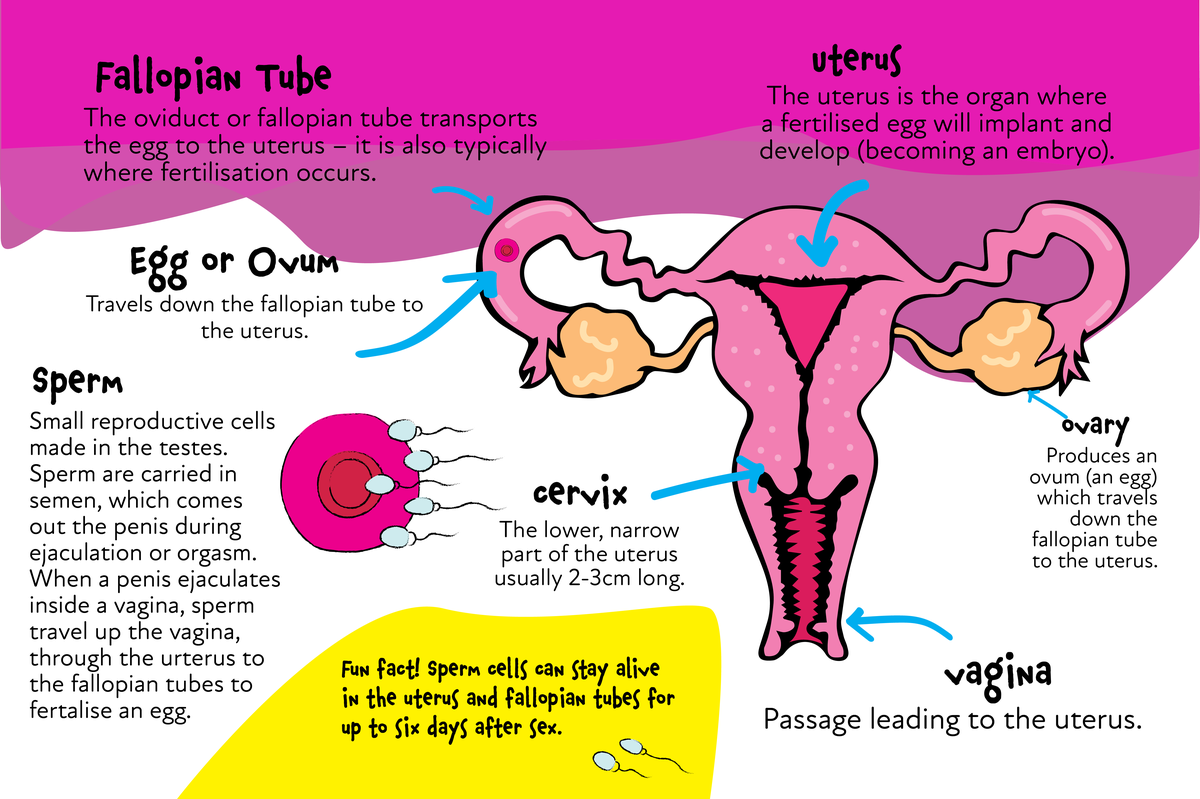
Fertilisation happens when a sperm combines with an egg. The fertilised egg then travels down the fallopian tube and settles into the wall of the uterus.
Once the egg gets nice and comfy, it starts to grow into a fetus and can eventually become a baby.
2. How do I know I'm pregnant?
Some common signs of pregnancy include:
- Not getting your period (menstruation stops when you are pregnant)
- Spotting or light bleeding
- Fatigue or tiredness
- Swollen, tender, sore breasts
- Nausea or vomiting (sometimes referred to as ‘morning sickness’)
- Urinating (peeing) more than normal
- Mood swings
Not everyone will experience these signs when they are pregnant. Or it may be tricky to tell the difference between pregnancy and normal premenstrual symptoms or the side effects of hormonal contraception (such as the pill or implanon).
If you think you might be pregnant, the best way to tell is to take a pregnancy test.
Home pregnancy tests are most effective two to three weeks after you have sex. A home pregnancy test is commonly a urine test that looks for the presence of the hormonal substance, human chorionic gonadotropin (hCG), in your urine (pee). Home pregnancy tests will have slight variations depending on the brand but all come with instructions for how to use.
Home pregnancy tests are available from pharmacies and some supermarkets and can cost anywhere between $7-$20. If you are aged 24 and under, and can’t afford to buy a pregnancy test, you can contact Pulse Youth Health South (Glenorchy) for access to free pregnancy tests.
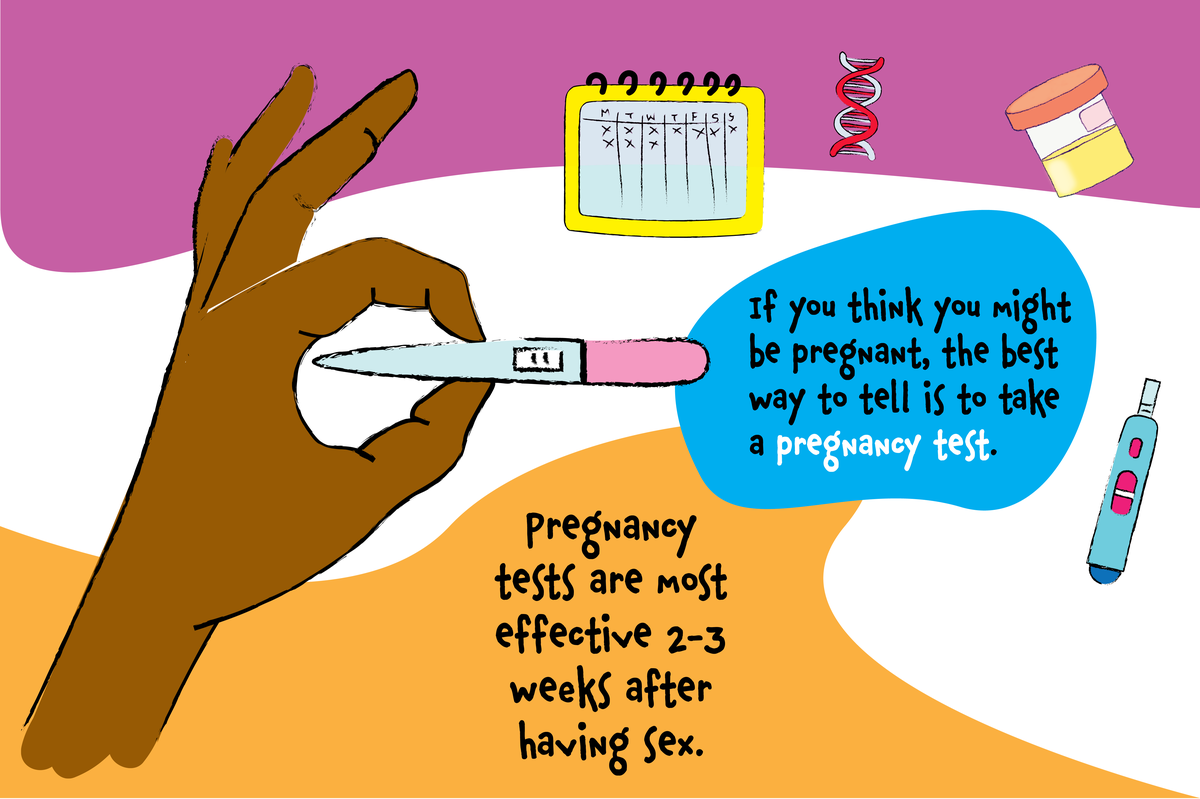
3. OMG! The pregnancy test is positive!
Scream into a pillow, shout with joy, stand in silence, cry - there’s no right way to react to a positive pregnancy test. An unplanned pregnancy can be a shock.
Something you might want to consider next is telling someone you trust. This might be a friend, partner, family member or a health worker (like one of our Youth Health Workers at The Link).
If you are worried or fearful of the consequences of your partner, family and/or community finding out about the result of your pregnancy test, you can call 1800 RESPECT (1800 737 732) or Kids Helpline (1800 55 1800) for information, advice and referral for further support. Call 000 if you are in danger.
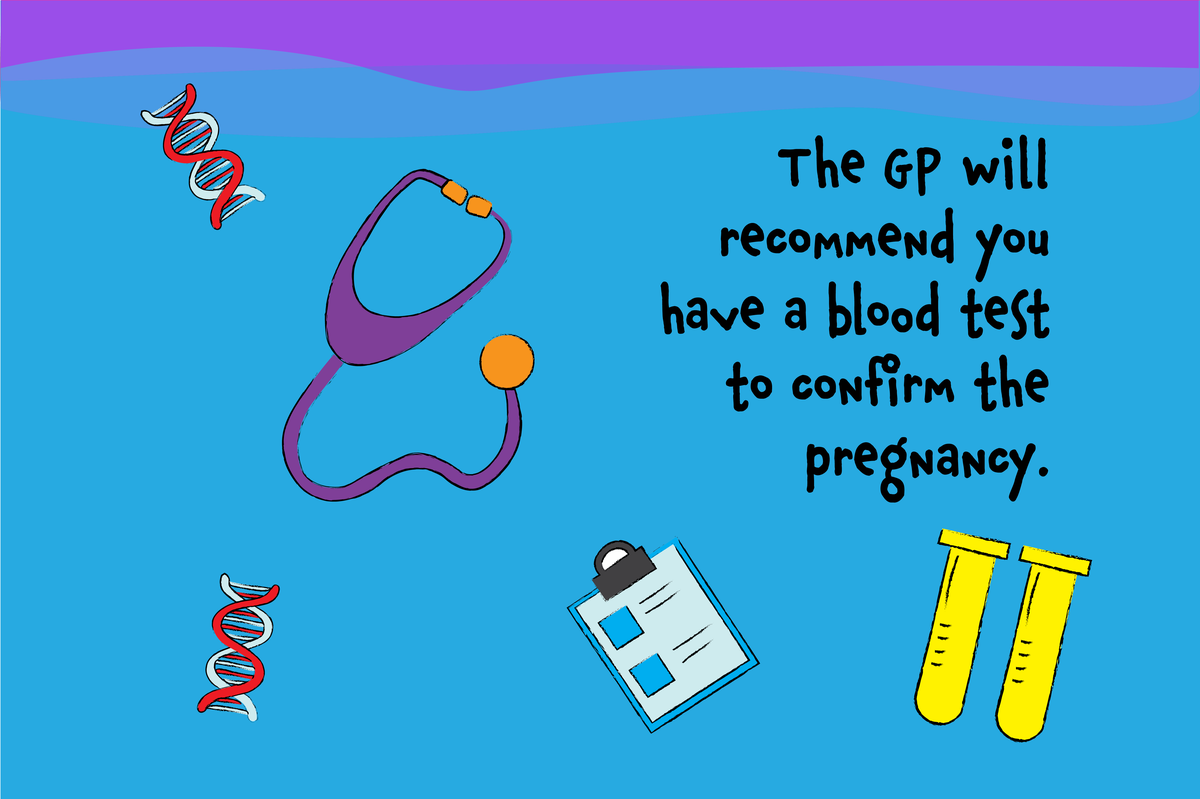
4. Confirm the pregnancy with a GP
If you do a home pregnancy test and return a positive result, or maybe it’s negative but you still feel pregnant, it’s important to book an appointment with a doctor/general practitioner (GP) to confirm the pregnancy.
In Tasmania, it can be difficult to find affordable or bulk-billing (free) GPs. If you can’t afford to see your regular GP, consider the following options.
Bulk-billing sexual and reproductive health GPs for young people aged under 25 years:
- The Link Youth Health Service (Hobart CBD)
- Pulse Youth Health South (Glenorchy)
Bulk-billing sexual and reproductive health GPs for anyone with current concession and medicare cards:
- Family Planning Tasmania (Glenorchy, Launceston and Burnie)
Young people under 25 years are welcome to apply for financial support for one-off medical costs, including a GP appointment, through The Youth Health Fund. Contact The Link for more information.
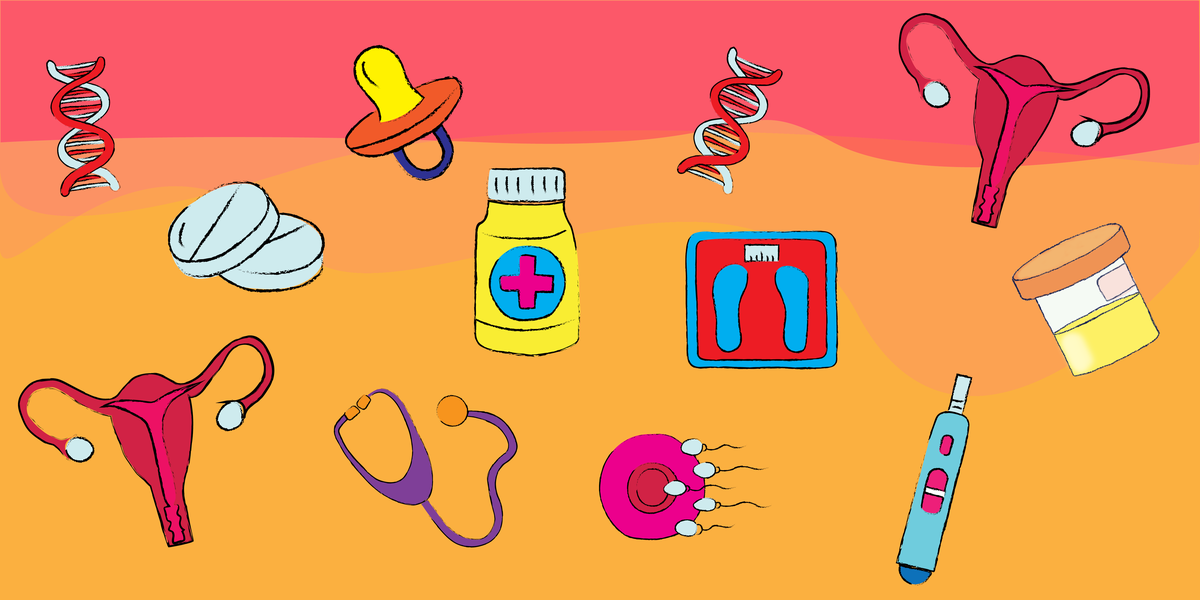
5. Your pregnancy choices in Tasmania
a. Termination of Pregnancy (Abortion)
Legal and available in Tasmania
Termination of pregnancy (ToP), also known as abortion, is legal and available in Tasmania. There are two kinds of termination of pregnancy available in Tasmania: non-surgical/medical terminations (MTOP) (available for pregnancies up to 9 weeks) and surgical termination of pregnancy (SToP) (available for pregnancies up to 16 weeks). SToPs for pregnancies over 16 weeks (typically up to 20-22 weeks) are available interstate.
Access
To access a Termination of Pregnancy in Tasmania you can directly contact a service in your area. Women’s Health Tasmania have a comprehensive list of MToP and SToP services on their website.
You can ask your GP to refer you to a ToP service in your local area. Some GPs (listed here) may be able to provide MToPs directly.
Conscientious Objection
Some GPs may not agree with your choice to terminate your pregnancy for personal reasons such as religious beliefs. This is called conscientious objection. In this instance, by law, GPs must refer you to a service that can provide you with information, advice and referral for all pregnancy choices, including termination of pregnancy. There are four services recommended by the Tasmanian Government:
- The Link Youth Health Service
- Pulse Youth Health South
- Family Planning Tasmania
- Women’s Health Tasmania
Why do people choose to terminate?
People choose to terminate a pregnancy for a variety of reasons. There is no ‘right way’ to feel about your choice to terminate a pregnancy. For some people, this might be a straightforward, confident decision. For others, it might be a very difficult and upsetting decision. If you are unsure about your decision and need to talk it through with a professional, you can contact one of the above services.
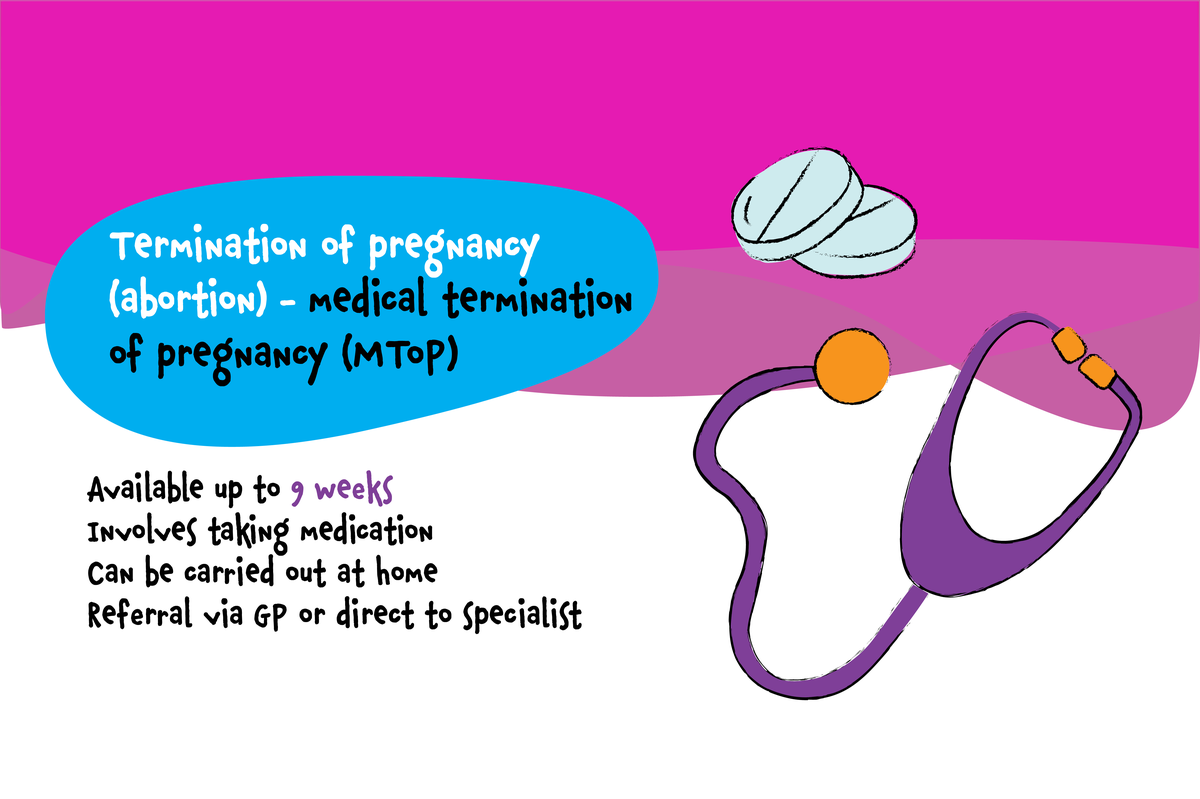
b. Medical Termination of Pregnancy (MToP)
In Tasmania, a medical termination of pregnancy (MToP) or medical abortion is available for pregnancies up to 9 weeks (63 days).
Medical terminations of pregnancy are non-surgical, meaning you don’t need to have an operation. MToPs can be carried out at home.
An MToP involves a consultation with a GP (in person or via telehealth) who prescribes a medication (commonly two doses of tablets). You will need to go to a chemist with the script to get the medication. The medication will cause the pregnancy to end as a miscarriage. This can happen around 6-12 hours after taking the medication. You will need to visit the doctor after having the MToP to make sure everything worked out ok and that you are no longer pregnant.
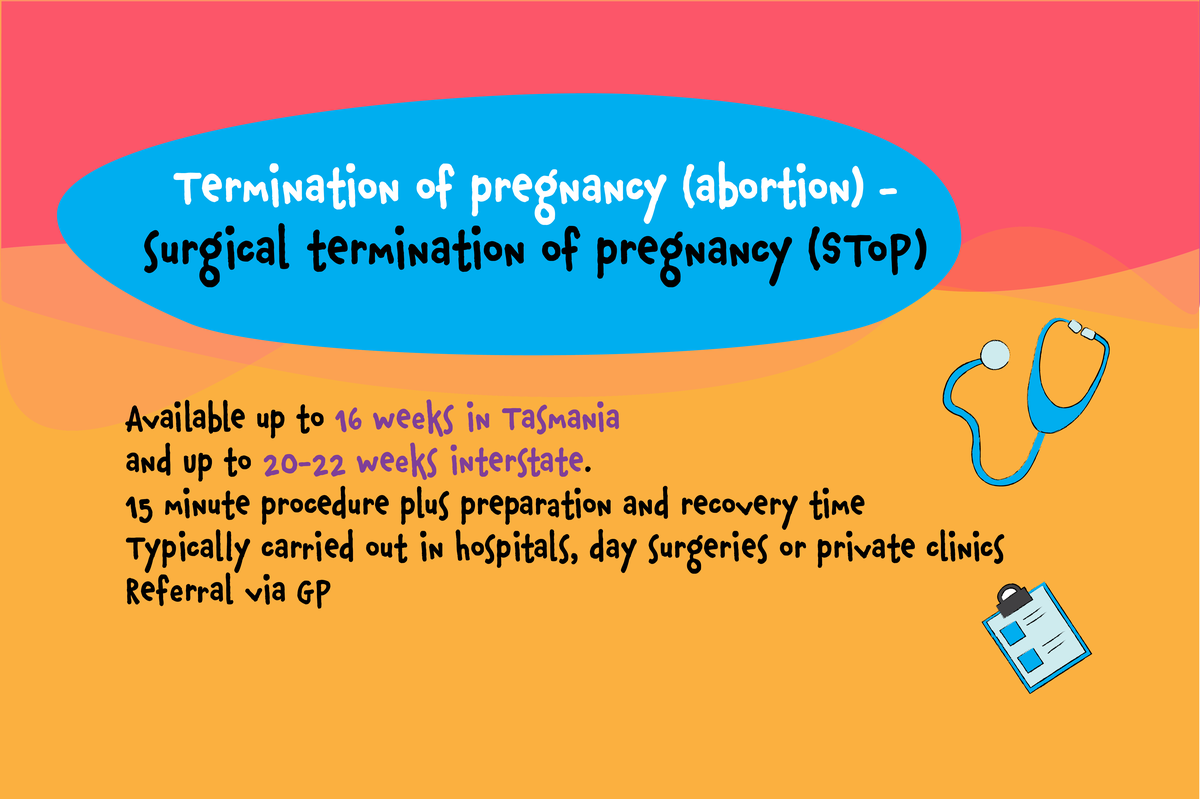
c. Surgical Termination of Pregnancy (SToP)
In Tasmania, a surgical termination of pregnancy (SToP) or surgical abortion is available for pregnancies up to 16 weeks.
Surgical terminations of pregnancy are typically done in hospitals, day surgeries or private clinics with some form of anaesthetic depending on whether you want to be awake or asleep for the procedure. During the procedure, the doctor will use a small vacuum or suction aspiration to gently remove the pregnancy from the uterus. The procedure usually takes about 15 minutes, plus preparation and recovery time.
To access an SToP, you will need a referral from a GP.
SToPs for pregnancies over 16 weeks (typically up to 20-22 weeks) are available interstate. The Tasmanian Government through the Department of Health provides financial help with transport and/or accommodation for Tasmanian residents needing to travel interstate for SToPs. Find out more about the Patient Travel Assistance Scheme here.
You can phone the following helplines to find out about interstate services:
- Victoria - 1800 MY OPTIONS (1800 696 784)
- New South Wales - Family Planning NSW Talkline (1300 658 886)
- South Australia - Pregnancy Advisory Centre (08 8243 3999)
- Queensland - Children By Choice (1800 177 725)
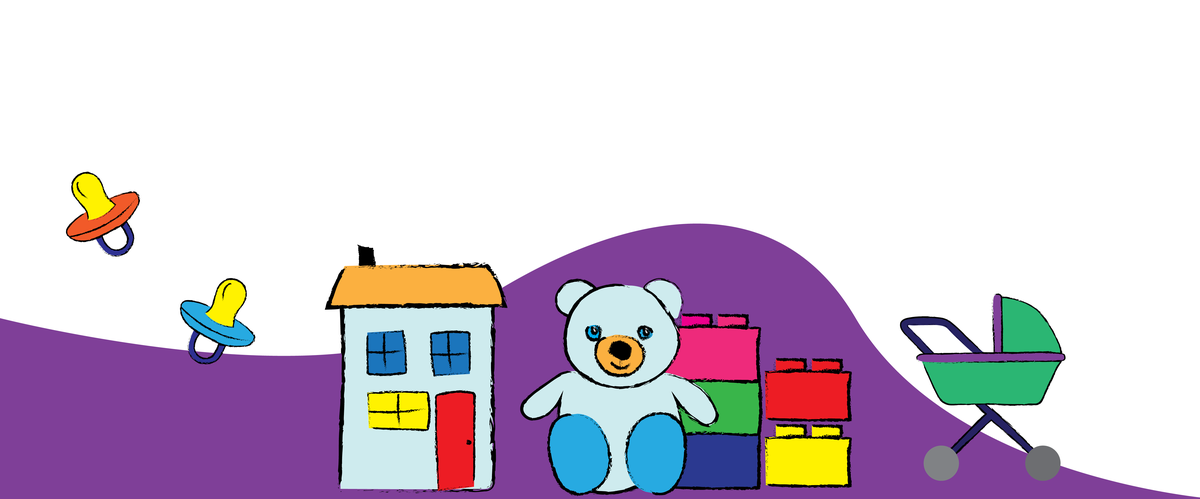
d. Continuing with the pregnancy and parenting
Speak with a GP about next steps, which may include an obstetric ultrasound and referral to your closest public or private hospital’s antenatal and maternity services.
See Health Direct’s summary of pregnancy and birth care options in Tasmania here.
Women's Health Tasmania offers free Preparation for Pregnancy, Birth and Parenting sessions. You can book up to three sessions by contacting them 1800 675 028 or visit their website.
Need support with housing, finances, Centrelink or other very important parenting life stuff? Come in and see a Youth Health Worker at The Link.
e. Continuing with the pregnancy and adoption
Adoption means transferring the legal rights and responsibilities of being a parent from the biological parents of a child to adoptive parents. This is sometimes referred to as ‘placing a child for adoption’.
Some people choose adoption because they want to continue with the pregnancy but do not feel they can care for the child after birth. In Tasmania, you will not be required to make a final decision about placing a child for adoption until after birth.
When placing a child for adoption, the birth parent gives up all their legal rights, responsibilities and connections to the child. For more information about adoption in Tasmania check out this fact sheet from the Department of Communities Tasmania.
If you decide to continue with your pregnancy and place your child for adoption, you will still need to speak with a GP about next steps, which may include an obstetric ultrasound and referral to your closest public or private hospital’s antenatal and maternity services.
You can contact Tasmania’s Adoption Services here.

6. Financial support for pregnancy medical expenses, including termination of pregnancy
Youth Health Fund
If you are aged under 25 years old you may be eligible for the Youth Health Fund, which can cover medical expenses including termination of pregnancy, scripts and GP appointments. You do not need a Concession or Health Care Card to access this fund. Contact The Link to find out if you’re eligible.
Women's Health Fund
If you are aged 25 and over and have a Pension Concession Card, Health Care Card or are experiencing financial hardship, you may be eligible for the Women’s Health Fund. Contact Women’s Health Tasmania to find out if you’re eligible.

